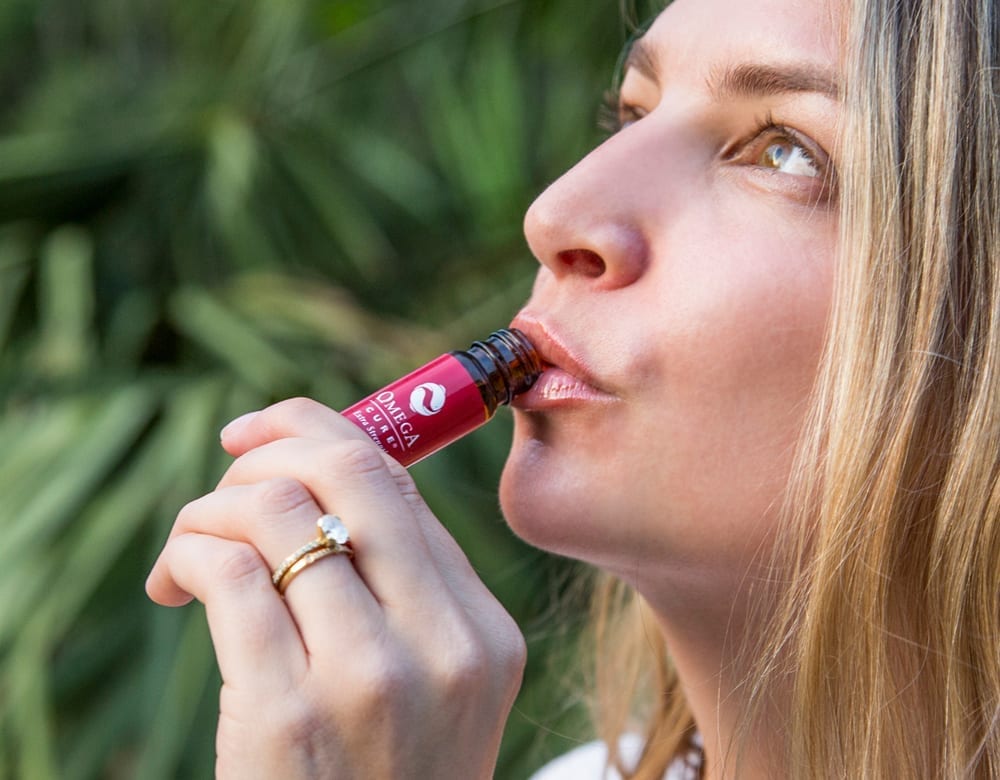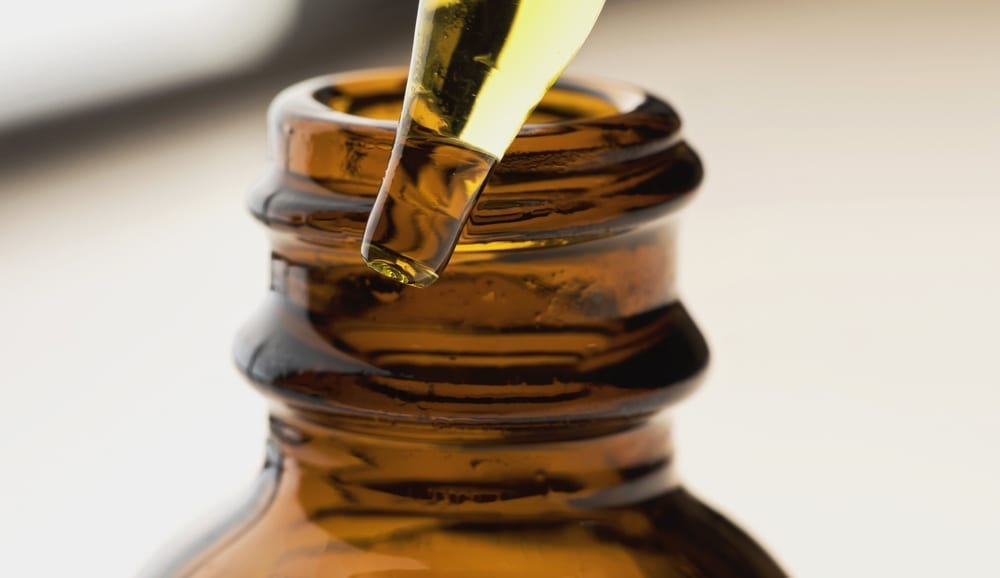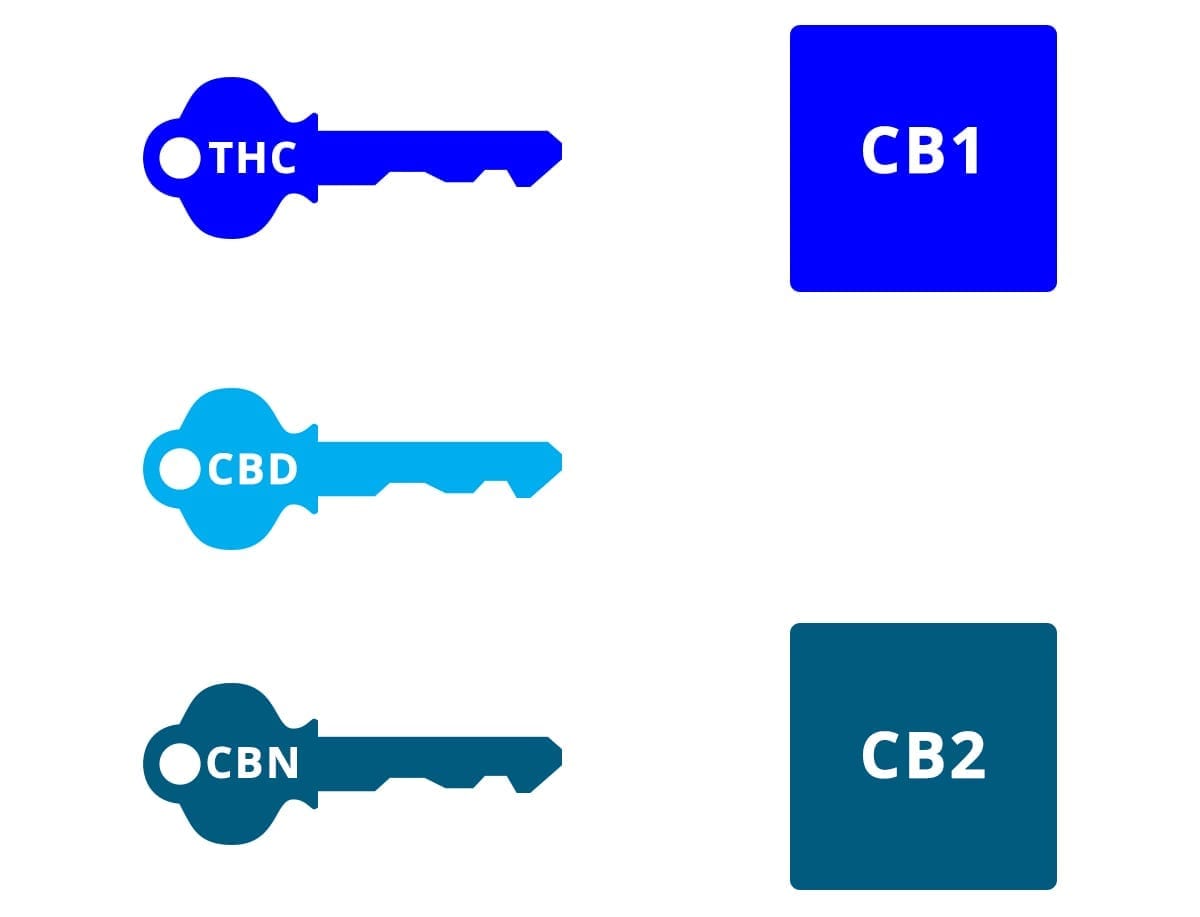Does CBD Oil Need Omega-3 to Work?
Every day, there seems to be a new article about the growing popularity of CBD oil. Some articles speculate on the enormous economic growth that is expected from CBD products over the next few years, while others focus on CBD’s potential for reducing chronic pain and alleviating anxiety. The third type of article comes from researchers who cite discrepancies between users’ glowing accounts and clinical testing that does not support these anecdotes.
So is CBD oil a massive hype or a science-based gift from nature? And if it happens to be the latter, what’s the best way to maximize its effects?
What Is CBD and What Does It Do?
CBD (short for cannabidiol) is a substance extracted from the flower and leaves of the hemp plant. Discovered in the 1940s, CBD is one of over 100 identified cannabinoids in the Cannabis plant, accounting for up to 40% of the plant’s extract. Unlike another prevalent cannabinoid (THC), CBD does not appear to create the psychoactive effects associated with marijuana (1, 2).
The bulk of the research on CBD has focused on its ability to affect cell metabolism through what is called the endocannabinoid system. This system is involved in a wide range of physiological functions, including the regulation of our mood, inflammation response, immune system, and metabolism.
The precise mechanisms of how CBD works are not entirely clear; however, the main hypothesis is that CBD has a significant influence on the endocannabinoid system by mimicking the body’s own endocannabinoids.
What Are Endocannabinoids?
Found in every organ and tissue of the body, endocannabinoids are important lipids made naturally from the cells’ content of omega-3s and omega-6s. These lipids stimulate specialized cell membrane receptors, which in turn prompt the cell to perform specific tasks.
For instance, when certain types of endocannabinoids activate the endocannabinoid receptor CB1, the cell increases energy storage. Similarly, when endocannabinoids activate another receptor (CB2), they help to reduce pro-inflammatory cytokines (3). Note: These are the same receptors that cannabinoids (like CBD) act on, too.
THC, CBD, and CBN are three cannabinoids found in Cannabis. Mimicking the body’s endocannabinoids, they “unlock” the receptors CB1 and CB2, creating a variety of effects.
There are numerous types of endocannabinoids and endocannabinoid receptors, all of which have multiple impacts on the cells. Therefore, it can be incredibly difficult to generalize about their effects. However, this multi-purpose functionality helps to explain why the endocannabinoid system is believed to have an influence on many different diseases and health conditions.
How Are Omega-3s Connected to the Endocannabinoid System?
As mentioned above, endocannabinoids are lipids made from the cells’ omega-3 and omega-6 content. Once cells build up a sufficient inventory of these fatty acids, endocannabinoids are created rapidly and as-needed in response to brain activity and stimuli (like stress and exercise).
Omega-3s are directly involved in the synthesis of endocannabinoids, and also react with existing endocannabinoids to create omega-3-derived endocannabinoid epoxides (which have powerful anti-inflammatory properties)(4). Due to the important role that omega-3s have in the cell membrane, researchers believe that omega-3s also serve as crucial anchors for endocannabinoid cell membrane receptors (5).
To put it simply, omega-3s and endocannabinoids are totally dependent on each other in a healthy brain and body. This connection can also help explain why the noted anxiety and pain relieving effects from taking CBD oil are similar to the results achieved from receiving adequate omega-3 supplementation over time (6).
What Happens When You Don’t Get Enough Omega-3s?
Omega-3 deficiency is widespread in today’s world, impacting some 95% of adults in the United States (7). As researchers have demonstrated, this deficiency has serious consequences for the healthy functioning of our endocannabinoid systems.
Omega-3-deficient diets don’t just limit the creation of beneficial endocannabinoids and the omega-3-derived endocannabinoid epoxides. Studies have also shown that omega-3-deficiency creates dysfunctional endocannabinoid receptors, uncoupling them from the protein and altering signaling pathways in the brain (8).
Health Consequences of Omega-3 Deficiency
Consequences of dysfunctional endocannabinoid receptors (due to omega-3 deficiency) include increased anxiety and impaired behavior, according to one mice study from the University of Bordeaux (9). In addition, studies also show that omega-3 deficiency plays a role in increasing the development of obesity through the dysregulation of the endocannabinoid system (10).
Chronic deficiency of omega-3s in our diet may partly explain society’s enormous craving for CBD products. What’s more, it may also help to explain the widely-diverse experiences that CBD users have. After all, if one person’s endocannabinoid receptors are dysfunctional, throwing lots of cannabinoids at them won’t necessarily produce the results users are hoping to achieve.
While more research is needed to address these important topics, the above studies raise pressing questions.
Most people in the United States do not get enough omega-3s, either from diet or supplements. This is in stark contrast with other countries, like Japan, where omega-3 intakes are much higher.
Why Do People Prefer CBD to Omega-3 Supplements?
Considering the deep involvement of omega-3s in the endocannabinoid system, you would think that anyone fascinated by CBD’s effects would also have a dual interest in fish oil. However, when compared to most omega-3 supplements, CBD has clear advantages.
While CBD’s effects appear quickly, omega-3s take longer to work – often many weeks of consistent consumption. These rapid effects probably explain why CBD is creating such a buzz. With CBD products, people are also willing to take an adequate dose, but that often isn’t the case with omega-3 products.
CBD, however, does not solve the underlying omega-3 deficiency problem.
Many people have asked us if we make any products with CBD oil in them, but as of the time of publication, we do not. Please also note that the FDA has made it clear that combining CBD into existing supplements is currently not allowed.
Is CBD a Panacea?
Some years ago, I attended a meeting on the effects of a new molecule that had potential for treating Alzheimer’s. The presentation was inspiring, and left attendees with a feeling that this new molecule could be a major therapeutic tool.
Afterwards, I had the chance to discuss the science with the presenter one-on-one.
“Do you believe that a single molecule will do the whole trick in curing or preventing this disease,” I asked.
“Of course not,” he answered. “But the investors may believe it.”
Most physiologists and biologists know that single molecules are rarely a cure-all for complex health issues. Unfortunately, this point often gets missed when we get too focused on isolated substances — either because of the pharmaceutical industry’s desire for patentable products or the appeal of easily understandable buzzwords. The human body and cell metabolism are extremely complex and dependent upon the interactions of a multitude of factors (e.g. genes, environment, nutrition, microbiome, age, gender, etc). Therefore, it’s highly unlikely that changing just one factor will solve chronic conditions for most people.
There isn’t a single substance – whether that’s CBD or even omega-3s – that will ever give us a one-way ticket to good health. But when we understand the underlying mechanisms of the body and employ a synergy of wholesome efforts, we’ll be able to carve a better path forward.
This is the philosophy that guides us at Omega3 Innovations. It’s the reason we’ve created a full-spectrum oil, and the reason we’re passionate about the combination of our Omega Cure oil with melatonin and vitamin D3. It’s why we care about not just increasing our consumption of omega-3s, but also decreasing our intake of omega-6s, and why we like to share advice about how to improve sleep hygiene.
Combination therapy, in our book, is where the biggest medical innovation will come from in the future, and we’re excited to be exploring these principles as a company.
An Effective Omega-3 Dose, Made Simple
Experience the Omega3 Innovations difference for yourself with the most effective fish oil supplement on the market.
Buy Now
References:
1. Boggs, D. L., Nguyen, J. D., Morgenson, D., Taffe, M. A., & Ranganathan, M. (2017). Clinical and preclinical evidence for functional interactions of cannabidiol and Δ9-tetrahydrocannabinol. Neuropsychopharmacology: Official Publication of the American College of Neuropsychopharmacology, 43(1), 142-154.
2. Campos, A. C., Moreira, F. A., Gomes, F. V., Del Bel, E. A., & Guimarães, F. S. (2012). Multiple mechanisms involved in the large-spectrum therapeutic potential of cannabidiol in psychiatric disorders. Philosophical transactions of the Royal Society of London. Series B, Biological Sciences, 367(1607), 3364-78.
3. Hillard C. J. (2017). Circulating endocannabinoids: From whence do they come and where are they going?. Neuropsychopharmacology: Official Publication of the American College of Neuropsychopharmacology, 43(1), 155-172.
4. McDougle, D. R., Watson, J. E., Abdeen, A. A., Adili, R., Caputo, M. P., Krapf, J. E., Johnson, R. W., Kilian, K. A., Holinstat, M., … Das, A. (2017). Anti-inflammatory ω-3 endocannabinoid epoxides. Proceedings of the National Academy of Sciences of the United States of America, 114(30), E6034-E6043.
5. Chilton, F. H., Dutta, R., Reynolds, L. M., Sergeant, S., Mathias, R. A., & Seeds, M. C. (2017). Precision nutrition and omega-3 polyunsaturated fatty acids: A case for personalized supplementation approaches for the prevention and management of human diseases. Nutrients, 9(11), 1165.
6. University of Illinois at Urbana-Champaign. (2017, July 18). Omega-3 fatty acids fight inflammation via cannabinoids. ScienceDaily.
7. Stephens, D. (2015, December 10). Could widespread low omega-3 levels be putting American hearts at risk? Nutra-Ingredients-USA.
8. Larrieu, T., & Layé, S. (2018). Food for mood: Relevance of nutritional omega-3 fatty acids for depression and anxiety. Frontiers in Physiology, 9, 1047.
9. Larrieu, T., Madore, C., Joffre, C., & Layé, S. (2012). Nutritional n-3 polyunsaturated fatty acids deficiency alters cannabinoid receptor signaling pathway in the brain and associated anxiety-like behavior in mice. Journal of Physiology and Biochemistry, 68(4), 671-81.
10. Simopoulos A. P. (2016). An increase in the omega-6/omega-3 fatty acid ratio increases the risk for obesity. Nutrients, 8(3), 128.





Comments (4)
Absolutely on point to our research for the ability to cross the blood brain barrier for those suffering from chronic inflammation, pain as well as anxiety and memory loss. The combination of high quality omega 3 fish oil, melatonin and vape CBD has provided significant relief from symptoms of autoimmune and Lyme Disease. We are only at the cusp of a revolutionary change in health care! ~DFG
Great article, thanks.